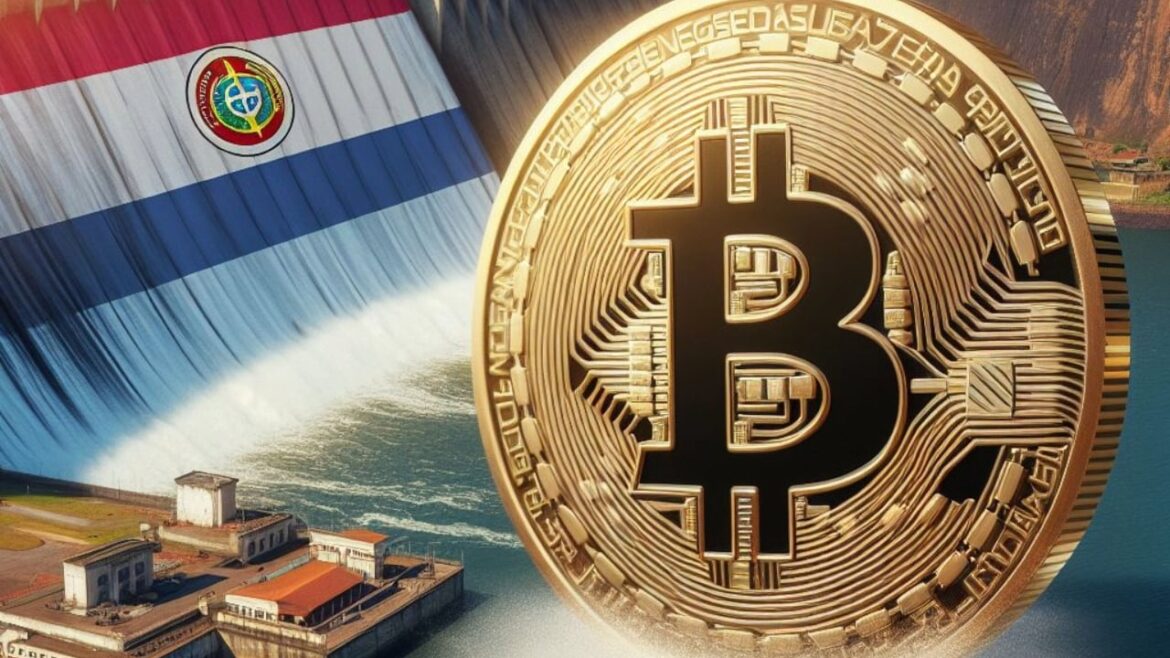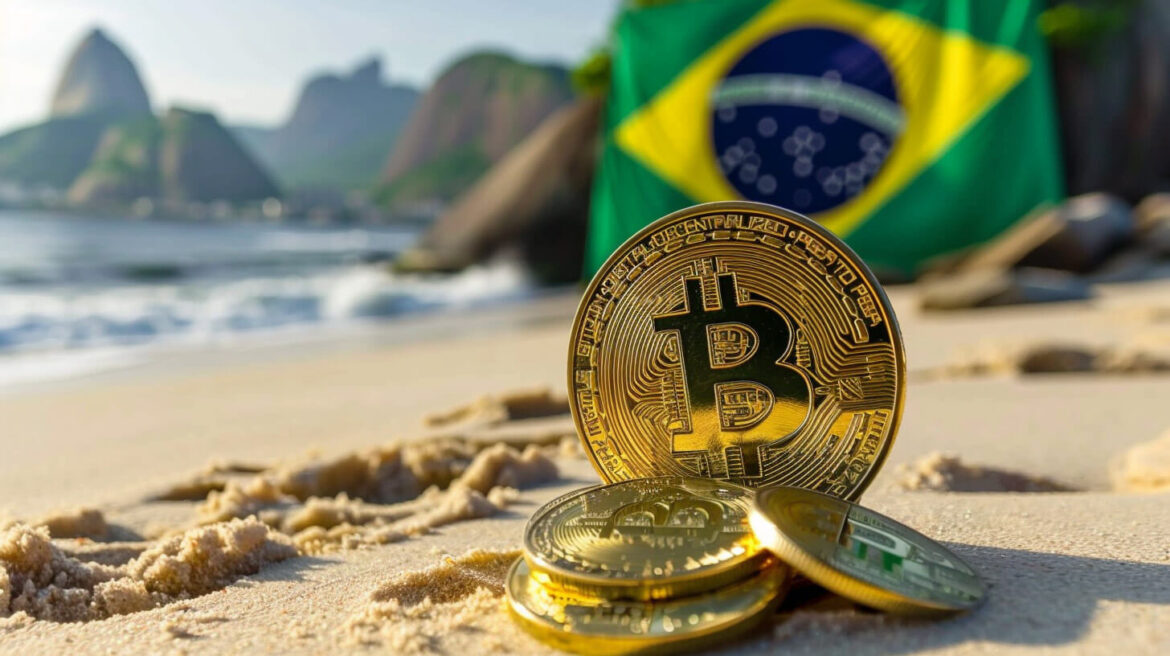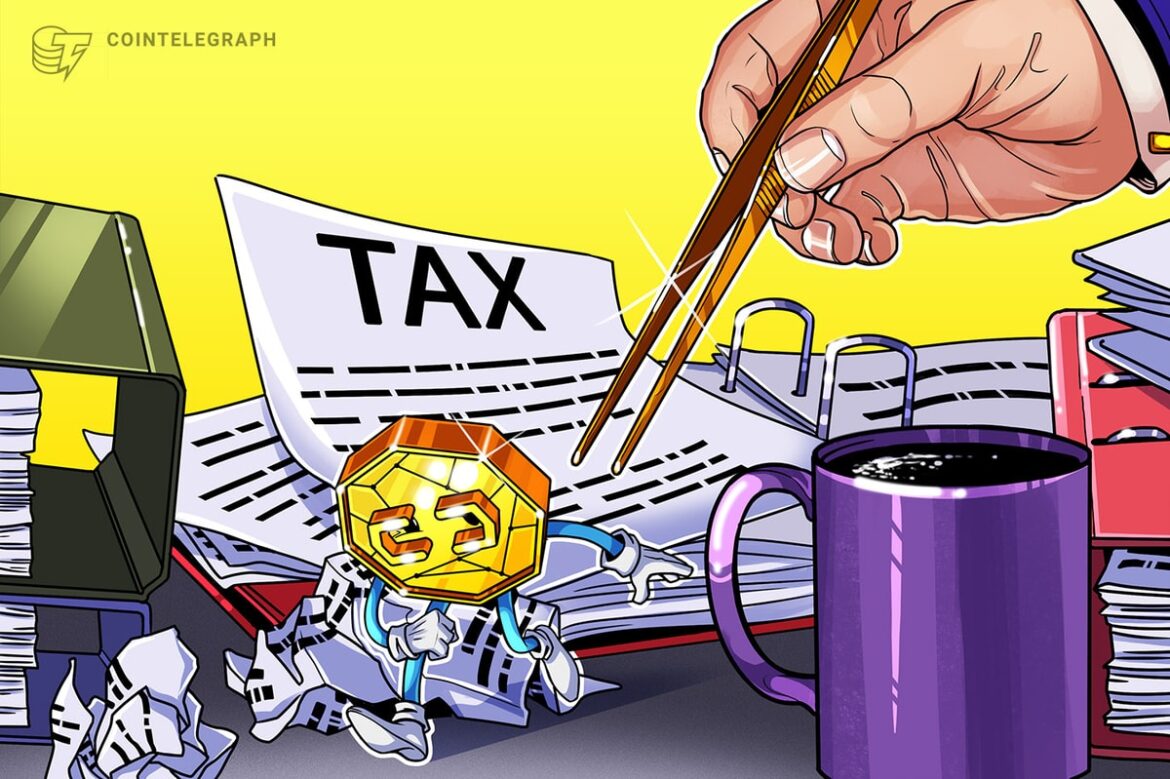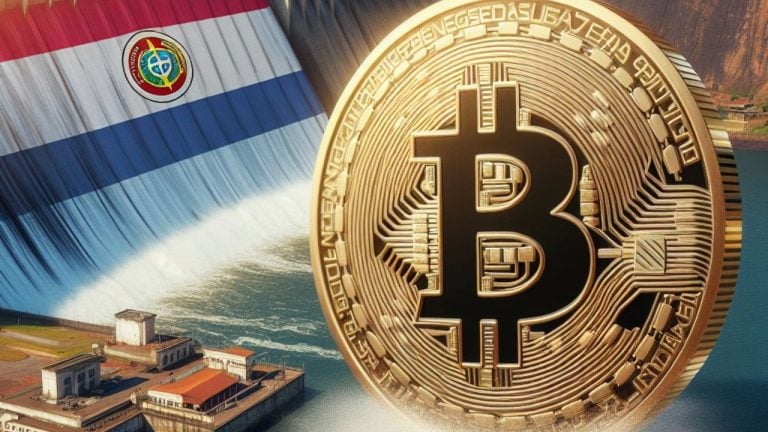 The Paraguayan Senate has approved a resolution supporting selling the country’s energy surplus to crypto mining companies, given the price and guarantees that these institutions offer. The declaration criticizes the subpar agreements that sell energy to Brazil for 25% of the fees collected for mining activities, calling to direct this energy to 20 new contracts […]
The Paraguayan Senate has approved a resolution supporting selling the country’s energy surplus to crypto mining companies, given the price and guarantees that these institutions offer. The declaration criticizes the subpar agreements that sell energy to Brazil for 25% of the fees collected for mining activities, calling to direct this energy to 20 new contracts […]
Source link
Brazil

Discover the cities of Jericoacoara, Rolante, and São Thomé das Letras, three tourist cities using Bitcoin as everyday money. Understand how the Lighting Network plays a crucial role in promoting the use of Bitcoin as a payment method.
Store of Value or Medium of Exchange?
Bitcoin (BTC), the leading crypto on the market, is establishing itself as a reliable, liquid, and international store of value. With a market value of more than US$1 trillion, bitcoin is already larger than several currencies issued by national governments. Notably, Bitcoin is already larger than the Russian ruble and Swiss franc.
After years of technical discussions, Bitcoin’s base layer is establishing itself as a network for large-value settlement. At the same time, transactions requiring low fees and high speed are being carried out on second-layer, centralized, or decentralized solutions.
In particular, the Lightning Network (LN), a solution proposed to improve Bitcoin’s scalability, is probably the most used tool for settling small bitcoin payments or making everyday purchases.
At least in Brazil, LN is establishing itself as a popular option for making everyday payments in three tourist cities: Jericoacoara, São Thomé das Letras, and Rolante.
Notably, these cities are in the North, Center, and South of Brazil. In all three cities, Bitcoin use was driven by local non-profit projects.
Learn a little more about these three success stories from the Bitcoin world.
This article was originally published on the Brazilian blog Coinext, and focused on bringing educational content about Bitcoin and the digital assets market.
São Thomé das Letras
São Thomé das Letras is undoubtedly one of the most mystical places in Brazil. The city, which has just 8 thousand inhabitants, is one of the main tourist cities in Minas Gerais, the state of which it is part.
São Thomé das Letras is located high on a set of mountains, which provides stunning views from anywhere in the city. Furthermore, the city is surrounded by waterfalls and rivers that are easily accessible. Another highlight is the countless legends and mysticism linked to the region, which involve gnomes, aliens, elves, and other mythological beings.
And it was amidst this scenario that the Mountain Bitcoin project emerged. The project, started by a local bitcoiner, aimed to spread knowledge about the leading crypto to the city’s residents, mainly merchants and students.
The result was impressive. Dozens of local businesses display stickers saying, “We accept Bitcoin.” Payments are made through LN through Satoshi and Blink Wallet.
Victor Souza, resident of São Thomé das Letras, stated that the project has aroused particular interest among children in Bitcoin:
“The children received some satoshis in their wallets, which they can then spend on fruit at the largest local supermarket, which has agreed to participate in the project. The children were extremely happy and interested in learning more about Bitcoin. Bitcoin is in fact a generational technology, which tends to arouse the interest of younger people. In the end, it is something inevitable, a natural evolution of money.”
Furthermore, Victor noted that payments in Bitcoin are still uncommon compared to traditional methods, despite many businesses accepting the digital asset:
“Cash payments are still more common, and this is natural. People don’t want to spend bitcoin. They prefer to get rid of weak government money. But just the possibility of making purchases in bitcoin is already a great evolution for the use of digital money.”
Jericoacoara
The city of Jericoacoara, located in northeastern Brazil, became known as Praia do Bitcoin. Inspired by El Zonte, located in El Salvador, Jeriquaquara pioneered using Bitcoin as currency.
The project was driven by bitcoiner Fernando Motolese, who promoted educational activities with local students and merchants.
“The school librarian told me that the computers in the IT room had been turned off for 2 years. I am a computer technician. So I told the director to let him raise funds to fix the school’s computers.”
Motolese elaborated:
“We started getting closer. I posted online that I needed resources to fix the computers. This opened up the possibility of us getting closer. So, the folks at Bitcoin Beach donated 0.1 bitcoin to us. With this donation of 0.1 bitcoin from Bitcoin Beach, we carried out this activation, which consisted of producing 408 paper wallets.”
Integration with LN was fundamental for adopting Bitcoin in the region, which now has several businesses that accept the leading digital asset.
Rolante
Rolante, located in southern Brazil, has just 21,000 inhabitants. However, more than 200 businesses accept the leading crypto in the region, a very significant number.
The adoption of Bitcoin in the region was driven by the couple Ricardo and Camila, who founded the Bitcoin É Aqui project. In addition to boosting the use of Bitcoin in commerce, they also held the event Bitcoin Spring Festival, which brought together Bitcoiners from all over the country.
Notably, the couple stated although the adoption of Bitcoin is helping to boost tourism in the city:
“The Project “Bitcoin Is Here!” comes at a time when local traders were hungry for something to boost tourism in the region. And at the same time, when I was already restless and needed to pass on the benefits of Bitcoin beyond myself.”
Victor Souza, head of SEO at Criptonizando, highlighted that the vast majority of merchants that accept Bitcoin in the city use the Lighting Network to settle payments, which are then consolidated in the base layer:
“With the establishment of Bitcoin as a settlement layer for large amounts, LN gains prominence as the main open protocol for these payments. Due to the still somewhat complex UX, many merchants opt for custodial wallets, which can then be sent to a proprietary address.”
Brazil and other countries in Latin America are establishing themselves as early adopters of Bitcoin. The region has several countries with weak and inflationary currencies, which incentivizes the adoption of the leading digital assets. Initiatives such as Praia Bitcoin, Montanha Bitcoin, and Bitcoin É Aqui are advanced in adopting Bitcoin as current money, which could take decades to occur globally.
Latest Alpha Market Report
Latam Insights: El Salvador Won’t Sell Its Bitcoin, Bitcoin Spot ETFs Land In Brazil and Peru
 Welcome to Latam Insights, a compendium of Latin America’s most relevant crypto and economic news during the last week. In this issue: President Bukele states El Salvador will not sell its bitcoin, Bitcoin ETFs land in Brazil and Peru, and Argentine President Javier Milei aims to criminalize central bank money issuance. El Salvador Won’t Sell […]
Welcome to Latam Insights, a compendium of Latin America’s most relevant crypto and economic news during the last week. In this issue: President Bukele states El Salvador will not sell its bitcoin, Bitcoin ETFs land in Brazil and Peru, and Argentine President Javier Milei aims to criminalize central bank money issuance. El Salvador Won’t Sell […]
Source link
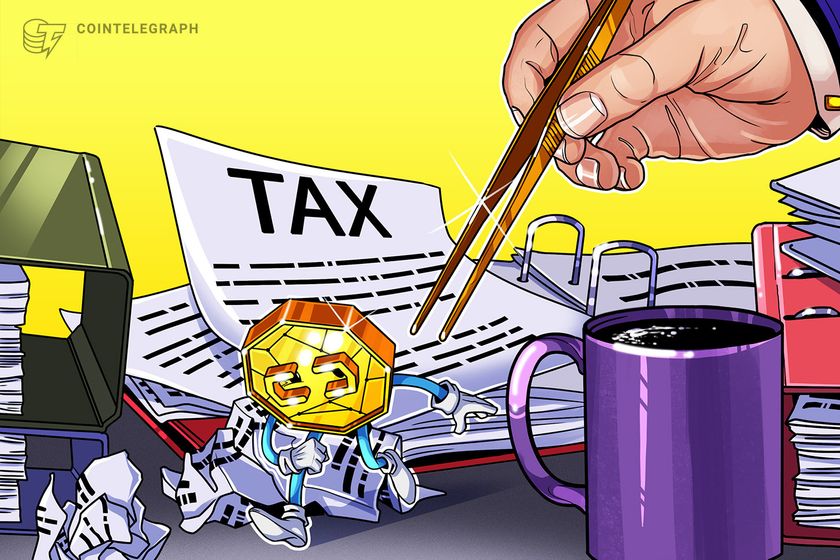
The President of Brazil, Luis Inácio Lula da Silva, has signed a law introducing taxes on crypto assets held abroad by Brazilian citizens.
Lula signed the law on Dec. 12, which was then published the following day in the Diário Oficial da União, or the Official Diary of the Union. The law will come into force from Jan. 1, 2024.
The new taxes will not apply exclusively to crypto but also to profits and dividends gained by Brazilian taxpayers from investment funds, platforms, real estate or trusts abroad. The Brazilian government intends to collect around 20 billion reals ($4 billion) of new taxes in 2024.
Related: IRS lists 4 crypto crimes among its top cases in 2023
Those who begin paying the taxes in 2023 are being offered an early-bird advantage: they’ll pay a levy of 8% on all income made up to 2023 in installments, with the first installment beginning in December. Starting in 2024, the tax rate will be set at 15%. Overseas earnings up to 6,000 Brazilian reais ($1,200) will be exempt from taxation.
Speaking to Cointelegraph, João Carlos Almada, controller at Brazilian stablecoin issuer Transfero, explained that the taxation of digital asset income is not new to the country. However, he said there are aspects of the law that could use some clarification:
“Some points in the text need improvement, for example, compensation for losses in the period, something similar to the tax rules for stock assets. I believe that with regulation evolving in the country, we will go through new discussions on this topic, aiming to provide even greater transparency to the market, thus generating more credibility.”
Brazil isn’t the only country eyeing the overseas crypto holdings of its citizens. In November, the Spanish Tax Administration Agency also reminded its citizens about their obligations to declare crypto stored overseas. However, that demand concerns only individuals with balance sheets exceeding the equivalent of 50,000 euros (around $55,000) in digital assets.
Additional reporting by Cassio Gusson
Magazine: Lawmakers’ fear and doubt drives proposed crypto regulations in US
Brazil BTG Pactual bank buys Bitcoin-friendly brokerage Orama for $99M
Major Brazilian investment bank BTG Pactual is acquiring cryptocurrency-friendly brokerage Orama as part of its strategy to expand the bank’s digital platforms.
BTG Pactual has signed an agreement to buy 100% of Orama’s shares for 500 million Brazilian reais ($98.7 million).
Announcing the news on Oct. 2, BTG Pactual said that the acquisition is part of the bank’s digital expansion strategy and offers more investment opportunities.
“We are very excited about the acquisition, which will provide Orama customers with access to the complete BTG platform,” BTG’s digital platforms partner Marcelo Flora said. The acquisition is subject to the necessary regulatory approvals from authorities, including the central bank of Brazil, the announcement notes.
Founded in 2011, Orama is said to have nearly 18 billion reais ($3.6 billion) of assets under custody and services about 360,000 customers. Focused on the distribution of investment funds and fixed-income products, Orama has also been exploring cryptocurrency investment.
In April 2022, Orama’s wealth management arm, Orama Singular, launched an actively managed fund focused on digital assets. Called Block3, the fund offers multimarket investment in the cryptocurrency industry, providing exposure to various crypto assets, including Bitcoin (BTC), tokens, derivatives and others.
Related: Brazil’s crypto surge prompts central bank to tighten regulation
Orama’s digital asset fund has recorded a successful trend over the past year, surging more than 30% from 90.5 reais ($17.9) in October 2022 to 118.8 reais ($23.5) in September 2023, according to data from Bloomberg.

It’s unclear whether BTG Pactual’s Orama purchase will result in some new crypto-related products at the bank. BTG Pactual didn’t immediately respond to Cointelegraph’s request to comment on the acquisition.
Apart from purchasing Bitcoin-friendly Orama, BTG Pactual has been active in crypto-related ventures in recent years. In April 2023, the bank announced plans to launch BTG Dol, a new stablecoin pegged to the United States dollar on a 1:1 ratio, using the bank’s custody services. The bank previously launched a crypto trading app enabling customers to directly invest in cryptocurrencies.
Magazine: Web3 Gamer: Minecraft bans Bitcoin P2E, iPhone 15 & crypto gaming, Formula E

Over 214 million Brazilians will soon be using blockchain technology for digital identity, the government recently announced.
Rio de Janeiro, Goiás and Paraná will be the first states to issue identification documents on-chain through a private blockchain developed by Serpro, Brazil’s national data processing service. The entire country should be able to issue identity documents through blockchain technology by Nov. 6, reads a decree on Sept. 25.
According to Alexandre Amorim, president of Serpro, the immutability and decentralization of blockchain made it an ideal technology for the country’s digital identification project:
“Blockchain technology plays a critical role in protecting personal data and preventing fraud, offering a more secure digital experience for Brazilian citizens. Utilizing the b-Cadastros blockchain platform significantly enhances the security and reliability of the National Identity Card project.“
As per the local government, the national ID project is crucial in targeting organized crime, allowing government sectors to work together, offering a simpler way to access services and streamlining administrative records. The city of Buenos Aires, Argentina, recently disclosed a similar initiative, allowing residents to access identity documents via a digital wallet.
Over the past few years, Brazil has been working to unify identity issuance across its almost 30 states. The newly adopted technology will allow a more secure data exchange between the Federal Revenue and government departments, said the announcement.
Emissão da Carteira de Identidade Nacional (CIN) conta agora com a segurança do Blockchain. Saiba o que muda no documento e confira todos os detalhes que tornam a nova carteira de identidade dos brasileiros mais segura do que nunca!https://t.co/G2MigNkG1J
— Serpro (@SERPRO) September 25, 2023
Another significant development in the country is an upcoming central bank digital currency. The government released more information about the project in August, rebranding the digital currency to Drex.
According to previous reports, the central bank plans to expand business access to capital through a tokenization system associated with the Drex. The Drex code was discovered to allow a central authority to freeze funds or reduce balances, according to a local developer.
Magazine: How to protect your crypto in a volatile market — Bitcoin OGs and experts weigh in
Coinbase signals EU, Canada, Brazil, Singapore and Australia as priorities

Coinbase has flagged several countries outside the United States where it intends to focus its operations in the near term, citing their comparatively clearer crypto laws.
In a Sept. 6 blog post, Coinbase’s vice presidents for international business and international policy, Nana Murugesan and Tom Duff Gordon, marked the European Union, United Kingdom, Canada, Brazil, Singapore and Australia as “near-term priority markets.”
The pair said the countries are “enacting clear rules” and Coinbase would focus on “acquiring licenses, registering, and establishing and strengthening operations” in them.
Globally, countries are vying to become crypto hubs. Regulatory clarity has emerged in the EU, UAE, China (HK), Singapore, Australia and Canada, to name a few.
— Coinbase ️ (@coinbase) September 7, 2023
“Every part of the world is seeing progress on crypto-forward regulation — except for the U.S., which is opting for a ‘strategy’ of enforcement of existing rules and new regulations through the courts,” the pair wrote.
They added the country is “sidelining itself” on crypto regulations which puts at risk its influence over the space.
“We’re committed to helping to update the global financial system and providing more economic freedom and opportunity, and won’t stand idle just because the U.S. is,” they wrote.
The crypto exchange faces regulatory action in its native U.S., with a lawsuit from the Securities and Exchange Commission accusing it of selling unregistered securities and operating illegally.
“Go Broad, Go Deep” goes phase 2
Coinbase’s new priority markets are part of the second phase of its expansion plans — which it dubbed “Go Broad, Go Deep.”
It outlined its plans to establish partnerships with global and local banks and payment providers to expand its fiat ramps along with assuring its governance systems are compliant.
Related: Aave, Circle, Base become founding members of Tokenized Asset Coalition
Its lobbying and visibility efforts will also intensify ahead of the EU elections next June.
It flagged plans to engage with the G20 aiming to create global crypto standards and will keep a “scorecard” on each country’s crypto regulatory progress.
Coinbase is seemingly focusing its G20 lobbying efforts on Brazil — set to take the G20 chair in 2024.
In March, Coinbase expanded its offering in Brazil and according to the blog post, co-founder and CEO Brian Armstrong will visit the country later this year “to engage with key decision-makers and stakeholders.”
Collect this article as an NFT to preserve this moment in history and show your support for independent journalism in the crypto space.
Magazine: Asia Express: Thailand’s national airdrop, Delio users screwed, Vietnam top crypto country
Binance faces scrutiny in Brazil, exec summoned to testify before Congress

Deputy Alfredo Gaspar, a member of the Brazilian Chamber of Deputies, has requested the summoning of Guilherme Haddad, the director of Binance Brazil, to appear before the Brazilian parliament as part of an ongoing Parliamentary Commission of Inquiry (CPI) investigation into alleged pyramid schemes in the country.
The June 21 request will be voted on by members of the CPI on June 27.
According to a translation of the Brazilian news outlet Portal do Bitcoin, if the vote is approved, Haddad will be summoned to appear before the Brazilian Chamber of Deputies if the vote is approved. This development comes amid a global regulatory crackdown on the largest cryptocurrency exchange. Binance has faced scrutiny from authorities in the United States, France, the Netherlands, the United Kingdom and Brazil, underscoring international attention on the company.
Furthermore, the deputy claimed that Binance was utilized by pyramid schemes in the country to facilitate asset transfers.
He said:
“Hence, it is vital to understand Binance’s operations, its association with B Fintech, and its involvement with companies facing legal action for harming Brazilian consumers, as this strongly links Binance to the ongoing investigation.“
Authorities in the South American nation explained that the intent for summons is due to the fact the company is facing the scrutiny mentioned above from regulators worldwide. In Brazil, Binance is also being investigated by the Federal Prosecutor’s Office and Federal Police. The cryptocurrency exchange has allegedly been helping clients evade a stop order on cryptocurrency derivatives investments.
Related: Binance, Binance.US and CZ allege SEC made ‘misleading’ statements on exchange assets
The Securities and Exchange Commission of Brazil has already been pressing Binance to stop offering Bitcoin futures products to Brazilian customers, according to a previous report from Portal do Bitcoin.
Binance did not immediately reply to a request for comment from Cointelegraph by the time of publication.
Magazine: US and China try to crush Binance

